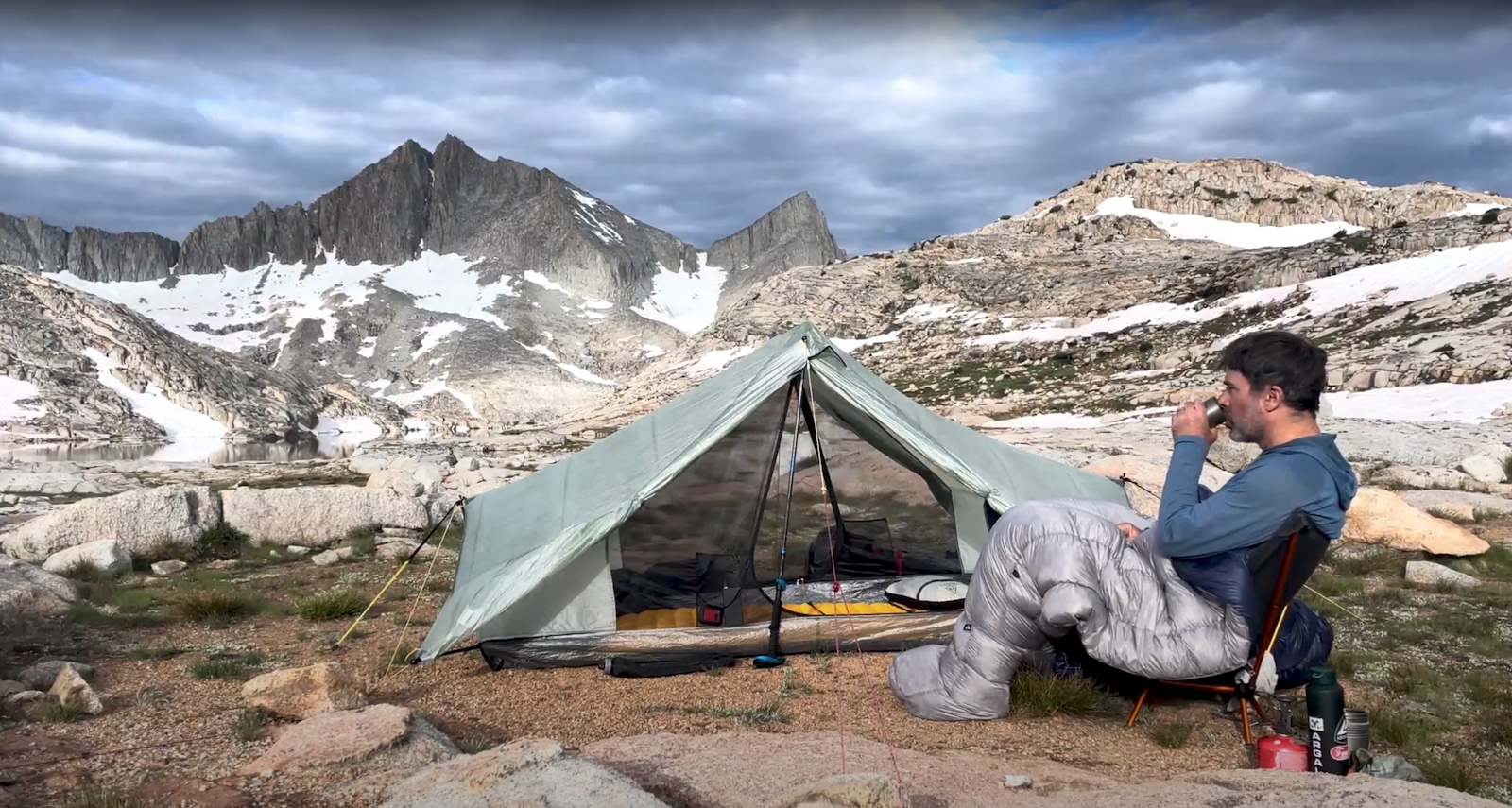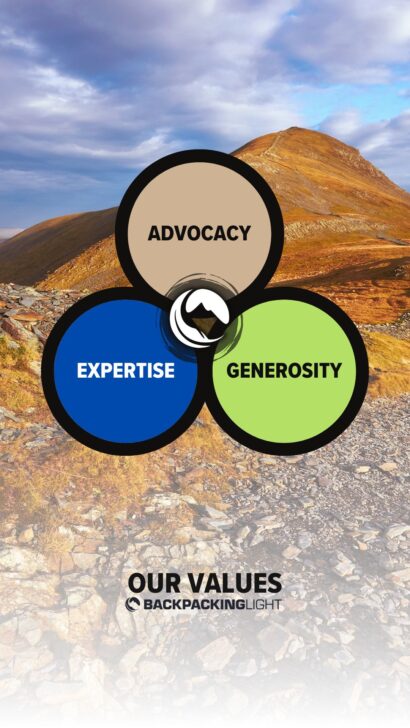by RYAN JORDAN
Publisher & Founder, Backpacking Light
Updated November 3, 2023
Introduction
My purpose with this gear guide is to share the gear that I’m currently using on my own backpacking trips and other outdoor adventures. Some of the products I discuss are those that have been in my kit for several years. Others are new to my kit this season.
Because this gear is the gear I choose myself (and often represents the gear that I’ve actually purchased with my own money), the selections here represent my personal recommendations of sorts.
I live and primarily hike in the northern US Rocky Mountains and intermountain and high desert regions of Idaho, Montana, Wyoming, Utah, and Northern Colorado, with occasional forays into the California High Sierra. This year, my focus has been on the High Sierra, Rocky Mountain National Park, the Never Summer Wilderness, and the Comanche Peaks Wilderness. In addition, the majority of my trail miles are hiked in the fall, winter, and spring. Compared to other locations in the US, these environments are dryer, windier, snowier, and colder. Keep that context in mind; it may provide some insight and value into why I prefer certain types of gear over others.
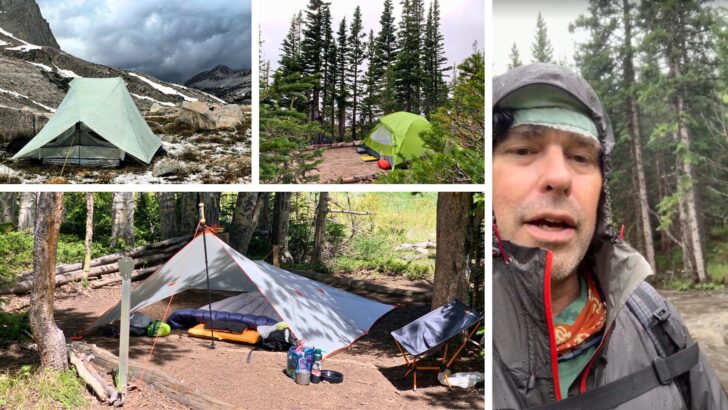
Consumer Disclaimer: This gear guide is intended to expand your awareness of what’s available in the backpacking gear marketplace. More importantly, I hope you’ll learn from my experience in a way that motivates you to be a more disciplined consumer. There is no single piece of gear that can transform your backcountry experience. Transformation comes from spending time in nature. Don’t replace time in the backcountry with compulsory consumption. Here are some of the basic consumption guidelines I strive to live by: use what I have; don’t buy what I don’t need; don’t go into debt to buy gear; buy used gear when I can; donate or repurpose gear I’m not using to others who need it; try to allocate more money on backcountry experiences and learning new skills, and less money on gear. That said, some of the items in this gear guide require an initial (and sometimes expensive) investment. I’m very cautious about recommending any item that costs a lot of money, and only include those expensive items here if – and only if – they have stood the test of time with respect to both versatility (being able to use them in a variety of environments) and durability (longevity).
Listen to the Podcast
This gear guide was featured in a recent episode of the Backpacking Light Podcast (link to show notes):
Updates
November 3, 2023:
- Electronics: The Garmin Fenix series has now been dropped from this gear guide, and replaced by the Garmin Epix Pro 2 Sapphire navigation watch. The Epix Gen 2 brings a far more advanced hi-res AMOLED screen (accessing better maps, charts, and more data per screen), improved battery life vs. Gen 1, and (in the Pro models), the new V5 sensor.
- Shelters: I’ve been using the Tarptent Dipole 1 DW with the solid fabric inner quite a bit in the snow, and I believe that it’s a very solid contender for winter at or below the treeline – extreme cold (due to minimal mesh in the solid fabric inner), snow-loading (due to the pole-and-strut structure), and wind. For extreme conditions at or above the treeline, I added the Slingfin Crossbow 2 Four-Season. If you know what you’re doing with both external and internal guylines and added structure with trekking pole outriggers, this tent is the lightest 2-vestibule (one for gear, one for cooking), double-wall winter tent available that can handle truly extreme conditions. Based on my experience using the Durston X-Mid 1 Pro this summer and fall, I’ve added it to the mix here because of its ease and speed of pitching, and deep vestibule storage when the doors are open. MSR Core Stakes were added because of their incredible holding power-to-weight ratio in a wide variety of soils.
- Sleeping: The NEMO Extreme Conditions Tensor Ultralight Insulated pad adds warmth and stability for little extra weight.
- Sunglasses: Ombraz armless sunglasses have been added for their exceptional Zeiss optics, light weight, terrific durability, and compatibility with a wide variety of headwear.
- Apparel: New apparel focuses on highly breathable and highly hydrophobic fabrics that provide high levels of comfort when worn in cool temperatures: Senchi Designs Alpha 60 Hoody and Arms of Andes Alpaca Wool 160 Base Layers (men’s | women’s). For extreme warmth-to-weight ratio layers for camp and sleeping, I added the Senchi Designs Alpha 60 Leggings, Farpointe Outdoor Gear Alpha Camp Socks, and Goosefeet Gear Down Socks.
Browse the Publisher’s Gear Guide (Product Database)
- Use the search and filter drop-down boxes to narrow your search.
- On smaller screens (i.e., tablets and small laptops), scroll right to see the entire table (not required on phones, which shows the product data below each product photo.
- Click a link in the OPTIONS column to learn more about or purchase the product.
| CATEGORY | BRAND | PRODUCT | PUBLISHER'S COMMENTS... | |
|---|---|---|---|---|
 | accessories | Ben's | Invisinet | Currently the lightest commercially-available headnet that still provides deep cape coverage with high-visibility mesh. |
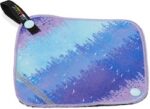 | accessories | Kula Cloth | Kula Pee Cloth | Gold standard of pee cloths, saves the hassle of packing out toilet paper / not leaving it in the wilderness (good LNT practice). |
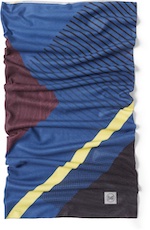 | accessories | Buff | Buff Original Multifunctional Headwear | I buy full length Buffs and cut them in half, giving me more versatility and lighter weight with sufficient protection as a headband or neck gaiter. Often my only summer "warm" hat. |
 | accessories | TheTentLab | DirtSaw Deuce | The new DirtSaw design is easier to use and a more efficient digging tool than any other ultralight trowel. If you skimp too much on trowel weight, you're not going to practice good LNT cathole skills. Instead, go for a digger that actually works. |
 | apps | Gaia | Gaia GPS | Still the simplest and fastest way to plan trips. Regular updates and new mapsets keep Gaia GPS relevant. Mobile app is excellent. |
 | apps | The Dyrt | The Dyrt | My favorite way to explore dispersed camping options. |
 | apps | Training Peaks | Training Peaks | I use a Garmin Fenix watch connected to Training Peaks (via Garmin Connect) to track my fitness progress. Aerobic fitness is based on hear rate monitoring during hikes and other workouts, and I've found this to be the most accurate predictor of training loads, load periodization, recovery needs, and planning for expedition performance. |
| apps | Recreation.gov | Recreation.gov | Say what you will about Recreation.gov, but the site is easy to use and it's nice to have a one-stop shop for all of my federal lands backcountry use permits. Vastly improved over recent years. | |
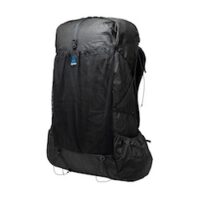 | backpacks | ZPacks | Arc Haul Ultra 70 | This is the lightest internal frame pack on the market that can comfortably carry a 30-40 pound load. |
 | backpacks | ZPacks | Nero Ultra 38L | When frameless is OK (loads of less than 20 pounds), the Nero 38L provides enough volume for multi-day trips if you have a light and compact load that focuses on an ultralight ethos. Light and durable in a package that weighs less than 12 oz with accessories. |
 | backpacks | Hyperlite Mountain Gear | Porter 85 | When large, bulky loads are required, this is my favorite pack. So many packs in this size range are overbuild with suspensions and frames that aren't necessary. I've used my Porter on trips of up to 14 days' duration without resupply, as well as packrafting expeditions and winter backpacking when my puffy stuff (bag, parka, pants, booties) occupies so much volume. |
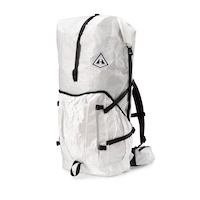 | backpacks | Hyperlite Mountain Gear | Northrim 55 Northrim 70 | My son Chase is a Northrim fan and I understand why. The full-Spectra bottom and exterior pockets provides an enormous amount of protective abrasion resistance. Since his jam is mountain scrambling, it's well worth the extra weight for him. Where my ultralight packs have holes in them, his seems almost pristine. |
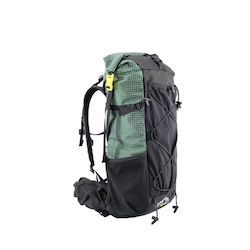 | backpacks | ULA Equipment | Kid's Spark | Finding kid's packs that don't weigh 3 or 4 pounds (or more) is tough. The ULA Spark fits that bill, and I've been hiking with kids who have been using it for several years now. Far and away my choice for a lightweight pack for kids ages 8-12+ or so who aren't carrying more than 15 pounds or so. |
 | backpacks | ULA Equipment | Ohm Ultra Ohm | My wife uses the Ohm, and for good reason. It's one of the few packs that offers enough volume for overnight backpacking, has an internal frame, but a soft enough suspension so as not to aggravate lower back (disc) pain. |
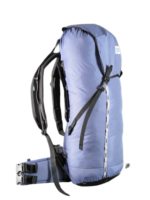 | backpacks | McHale | Windsauk (Custom) | A custom McHale fits better than any pack I've ever owned, and that makes it a great choice for expedition packs where you need to carry a lot of weight. My McHale Windsauk has a Bypass harness and P&G suspension, a full-Spectra body, and weighs about four pounds - while carrying 60 lbs comfortably. |
 | backpacks | Durston Gear | Kakwa 55 | The Kakwa 40 introduced a tubular, U-shaped frame that was rock-solid at preventing suspension collapse under load. The Kakwa 55, however, executes the whole package much better than the smaller sibling, with a more comfortable suspension. At the 55 L size, the Kakwa is one of the most versatile and comfortable packs I've ever used for loads exceeding 35 pounds. |
 | base layers | Outdoor Vitals | Tern Ultralight Merino Hoodie | With the introduction of Nuyarn, we're seeing ultralight merino blends appearing in fabrics weights of less than 115 gsm, which makes for hooded base layer shirts in the 4 to 5 ounce range - a welcome addition to my kit in '23, having replaced merino hoodies that weighed a few ounces more and were less durable. |
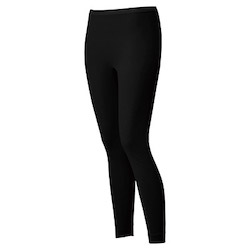 | base layers | Montbell | Zeo-Line Lightweight Tights Men's Zeo-Line Lightweight Tights Women's | With the discontinuation of Patagonia's lightest weight Capilene base layer bottoms, Montbell has filled the bill with the Zeo-Line series. Ultralight, great next to skin feel, and much more durable than wool. |
 | base layers | Brynje | Super Thermo T-Shirt | A winter base layer stable for me. My favorite combo is to wear this under a Farpointe Alpha Duo hoody during the winter, and under a rain jacket during the summer, when you need to spill as much heat as possible during pseudo-warm-ish rainstorms. |
 | chairs | Garage Grown Gear | Sit Pads | Sometimes I prefer a really simple sit pad over a chair, especially on short trips. The sit pads from the larger manufacturers (Thermarest and Nemo) are quite heavy for what the offer. This one is so light, it makes it hard to leave behind. |
 | chairs | REI Co-Op | Flexlite Air Chair | Lightest real chair, comfortable for slightly reclined sitting position. |
 | cooking | MSR | Pocket Rocket Deluxe | The #1 stove we tested in our most recent Stovebench survey of upright canister stoves. |
 | cooking | Vargo | BOT 700 | My staple pot for solo cooking. I use it during the day to cold soak lunch or dinner meals, at night for hot meals, in the morning for a big pot of coffee, and in a pinch as an emergency water container. The screwtop lid makes this one of the most versatile titanium pots on the market. |
 | cooking | MSR | Folding Spoon | I really like my stuff to be compact, and the MSR folding spoon is my main utensil. I'll add the fork if I know I need to eat trout. |
 | cooking | MSR | MSR Reactor 1.0 L Kit MSR Reactor 1.7 L Kit | The fastest and most weather resistant canister stove system we've ever tested. |
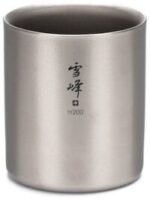 | cooking | Snowpeak | H200 Titanium Double Wall Mug | I'll admit that this is a luxury item. There's something about drinking hot coffee from an insulated mug. This simple, no-handle design is not only functional and light, it's a work of industrial design art. One of my all-time favorite pieces of gear. |
 | cooking | Suluk 46 | Una Wood Stove | Having been a Bushbuddy fan for a very long time, I now regulate wood-stove use mainly to day hikes during the winter. The little Una is perfect for boiling a small pot of coffee. I prefer using a stove like this over fire because of its fuel efficiency and lesser LNT impact. |
 | electronics | Garmin | inReach Mini 2 | The most functional and lightest standalone satellite communicator and GPS, with versatility when paired with a smartphone. |
 | electronics | Garmin | inReach Messenger | I've switched over to the new Garmin inReach Messenger for almost all of my satellite messaging needs in 2023. It's less bulky, simpler to use, has a terrific menu system and modern smartphone control app. The latter, combined with outstanding battery life, makes it an easy choice vs. the inReach Mini 2 for me. |
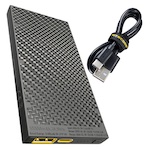 | electronics | Nitecore | NB10000 Gen 2 Power Bank | The Gen1 power bank was terrific (see our test results in our BatteryBench series), but Gen2 has more durable ports and more visible indicator lights. I'll take one to three of these, depending on the length of my trip. They are used to charge my watch, messenger, phone, and headlamp. |
 | electronics | GoPro | Hero 11 Black | High frame rates, high resolutions, ease of use, image quality, waterproof, extensible, easy to use, capable of pro/cinematic audio and video. I'm particularly enamored by filming trout underwater! |
 | first aid | Leukotape | First Aid Tape | Still my favorite foot tape after all these years. Other kinesiology tapes just can't cope with sustained exposure to dirt and water. Use tincture of benzoin as a tape adherent. |
 | fishing | Tenkara USA | Hane | Probably the easiest-to-use and most durable tenkara rod available. A great rod for kid's and beginners, and for backpackers who want to leave the rod case at home to save weight. |
 | fishing | Tanuki | Pocket Ninja 240 | New in my kit in 2023, the little Pocket Ninja 240 is my favorite small stream fishing rod. There are smaller and shorter rods out there, but the Pocket Ninja 240 can still throw a long line for lake fishing. |
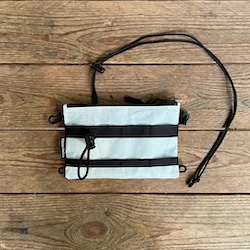 | fishing | Yonah Packs | Tenkara Backcountry Pack | For less than an ounce, Yonah Packs has made a fishing pouch that allows you to keep a minimalist tenkara kit organized. I use it to carry four lines, two tippet spools, two tiny boxes of flies, a leader straightener, hemostats, nippers, and floatant. |
 | food storage | Wild Ideas | Bearikade Expedition | I can't recommend all sizes of Wild Ideas Bearikades because the small ones offer minimal weight-savings benefits for a very high cost. However, the Expedition size makes the cost equation more palatable, so I still keep a Bearikade Expedition in my food storage quiver for long trips in National Parks, where hard-sided canisters are most commonly required. |
 | food storage | BearVault | BV425 Sprint BV450 Jaunt BV475 Trek BV500 Journey | Cost-effective, clear view of contents, easy to use, extremely reliable. |
 | food storage | Ursack | Ursack Major Ursack Major XL Ursack Major 2XL | Very light and easy to use food storage option for areas not requiring hard-sided bear canisters. I find myself using larger sizes more and more, because they're so much easier to pack and unpack. |
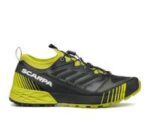 | footwear | Scarpa | Ribelle Run Men's Ribelle Run Women's | A technical, grippy, durable shoe for off-trail in rocky mountain conditions. |
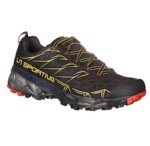 | footwear | La Sportiva | Akyra Men's Akyra Women's | I prefer the Akyra over the Ribelle Run if I'm going to be on terrain that's snowier or muddier. Not as technical in terms of footwork precision for rock scrambling, but probably a better all-purpose sole for a wider range of conditions. |
 | footwear | Scarpa | Zen Pro Shoe Men's | Still my favorite shoe if I have to suffer through a lot of scree, or need more edging support for technical (Class 4/5) scrambling. Also better for talus when carrying a heavy pack. |
 | footwear | Outdoor Research | Rocky Mountain High Gaiters | Most high gaiters are heavy. OR has managed to keep the weight in check through the years without compromising durability with the the Rocky Mountain High Gaiters. Stay away from the (slightly lighter) Helium model - they shred on bush and rock. |
 | footwear | Darn Tough | Hiker Boot Midweight Hiking Sock Men's Hiker Boot Midweight Hiking Sock Women's | I waffle between Darn Tough and Smartwool Socks. I use Darn Tough when I have to depend on durability for long trips, and Smartwool for the slightly softer feel. |
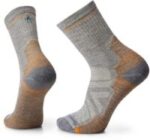 | footwear | Smartwool | Performance Hike Light Cushion Mid Crew Socks Men's Performance Hike Light Cushion Mid Crew Socks Women's | I waffle between Darn Tough and Smartwool Socks. I use Darn Tough when I have to depend on durability for long trips, and Smartwool for the slightly softer feel. |
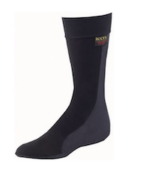 | footwear | Rocky | Gore-Tex Socks | An essential component of my cold/wet weather foot system. For slushy snow, my favorite combo is a waterproof shoe, high gaiter, these waterproof socks, and a merino wool blend sock under them. No cold feet for me in these conditions, summer or winter. |
 | headlamp | Fenix | HM50R | Recommended when you need a lightweight headlamp that offers a very bright mode for navigation when needed. |
 | headlamp | Nitecore | NU25 UL | New to me in '23, the NU25UL provides enough light for task lighting and slow trail hiking. If I know I need brighter flood lighting for off-trail or fast trail hiking at night, I opt for something else more powerful than this. |
| headlamp | Black Diamond | Wiz Headlamp Kids | Kid's have limited self-awareness of where they shine their lights. Save your night vision and get your kid's this lamp. It gives them enough light for their own task lighting without accidentally blinding you. The Wiz has a great diffuser lens for parents! | |
 | hydration | Smartwater | Bottle | For the money, a Smartwater bottle is still the best deal out there. Don't expect it to last all season, especially if you use it as a squeeze bottle. |
 | hydration | Hydrapak | 2 L Seeker 3 L Seeker 4 L Seeker | When you need more water storage in a collapsible form factor. Compatible with the 42 mm filter caps! |
 | water treatment | Hydrapak | 42 mm Filter Cap | High-quality filter cap with fast flow! My recommendation for a squeeze filter over other options from Platypus, Sawyer, and Katadyn. |
 | water treatment | Aquamira | Aquamira | Very effective, fast, light, with no foul tastes or odors. |
 | water treatment | Aquatabs | Aquatabs | Recommended for backup or additional water treatment when crypto or giardia cysts highly suspected (e.g., sheep or cattle-grazing mountain and desert areas of the US West). |
 | water treatment | Hydrapak | Seeker + 6L Gravity Filter Kit | This replaced my Platypus Gravity system in '23. I recommend it for groups and basecamping - it's one of the lightest, fastest, and most reliable gravity filters available. |
 | water treatment | Steripen | Ultra | The fastest way to treat water where crypto, giardia, or viruses thrive. |
 | insulated clothing | Enlightened Equipment | Men's Torrid Pullover Women's Torrid Pullover Men’s Torrid Jacket Women’s Torrid Jacket | This is my staple insulation piece for most 3-season hiking. I like the insurance of having a synthetic layer, and the EE Torrid line is both lofty and light. |
 | insulated clothing | Farpointe | Alpha Duo | A winter staple. Worn over a fishnet t-shirt and under a wind shirt or rain jacket, it's the core of an active insulation system that's comfortable in very hostile (windy and cold) weather. |
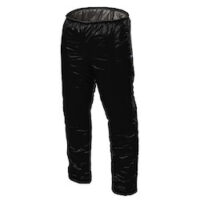 | insulated clothing | Enlightened Equipment | Men's Torrid Women's Torrid | Matching puffy pants to the jacket above. I start carrying these in October and they stay in my pack until Memorial Day. |
 | insulated clothing | PHD | Hispar K Jacket | New for the '22-'23 winter season for me, the Hispar K provides an almost obscene amount of warmth for its weight (20 oz). I used it this year on trips where temperatures went down to about -20 °F. |
 | insulated clothing | Timmermade | SUL 0.75 Jacket | There is no down top that's warmer for the weight than the Timmermade SUL. Nice wide baffles (properly filled), a drawcord neck and waist, and nothing else. No zip, no hood. Pure efficiency. I love this sweater for fringe season temperatures that approach the freezing level at dinnertime. |
 | other clothing | Patagonia | Quandary Pants | Durable, stretchy, breathable, and mostly mosquito-proof. |
 | other clothing | Patagonia | Sun Stretch Shirt | My pick for a trekking shirt in extremely buggy or warm weather. Breathable, light, quite stylish, and a well-articulated fit. |
 | other clothing | Saxx | Kinetic Boxer Briefs (Long Leg / Light Compression Mesh) | I'm not getting rid of my last pair of GoLite Stride shorts, but I did give them the year off in favor of the Saxx Kinetic. So far, so good - minimal stink and outstanding protection from chafing at a weight that's 25% lighter than the Stride. |
 | packing systems | Nylofume | Pack Liner | For trips where I'm saving every ounce, I opt for a pack liner instead of stow bags and stuff sacks. In it goes my sleeping bag, pad, puffy clothes, pillow sack, and if dry, my shelter. Roll the top and call it good. Nylofume is very light for the volume, and durable enough for an entire season. |
 | packing systems | ZPacks | Water Bottle Sleeve | I like being able to stow a 500-700 mL water bottle on my shoulder strap for easy access. The ZPacks water bottle sleeve fits all of my packs and is the one of the easiest I've used for removing and putting back the bottle - no fiddly cordage or elastic to deal with. |
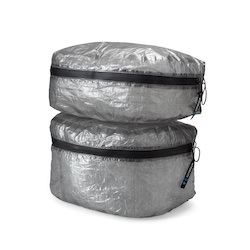 | packing systems | Hyperlite Mountain Gear | Pods | My favorite use of HMG Pods - food storage. I pack my food in Pods during the day inside my pack, and then slide them into an Ursack Major XL or 2XL at night. Makes for a much better packing and food storage experience. I also like Pods for storing my tents and other bulkier shelters. |
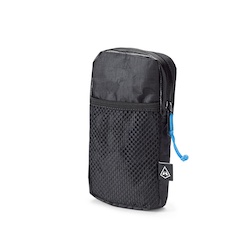 | packing systems | Hyperlite Mountain Gear | Shoulder Pocket | I've tried shoulder pockets from All the Brands, but this one achieves perfection *for me* for what I want it for: my Garmin inReach Messenger goes into the elastic front pouch and my 6-inch smartphone gets zipped into the waterproof-zippered compartment with my mini-notebook and pencil. |
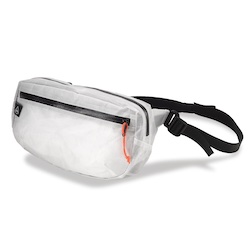 | packing systems | Hyperlite Mountain Gear | Versa Pack Vice Versa Pack | The Versa and Vice-Versa accessory pouches hold my essentials during difficult river crossings where I may be separated from my backpack, or extra snacks (plus sun and bug protection) while on the trail. I really like that they have a rear sleeve that allows them to slide onto a backpack sternum strap. |
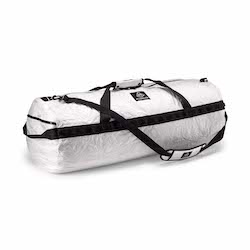 | packing systems | Hyperlite Mountain Gear | 140L Expedition Duffel | For air travel, I like a long, thin duffel like this. It fits my taller expedition pack better. In the duffel goes my pack, my trekking shoes, and my poles. Plus, this one is literally pounds lighter than most pack duffels, and plenty durable to boot. I have more than eight years on this one and have no reason to think it won't survive another decade or more into the future. |
 | rainwear | Montbell | Versalite Rain Jacket | The lightest rain jacket with pit zips, a full zip, a decent hood, and actual closures at all the apertures. Ignore anecdotal reports of fabric leakage. This jacket fabric is both waterproof and very breathable. |
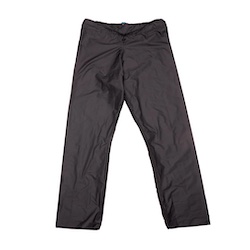 | rainwear | ZPacks | Vertice Rain Pants | This year I upgraded to the newest version, which are a little less durable, but lighter and easier to walk in. My favorite piece of gear that I almost never wear and stays in my pack most of the time! |
 | shelters | ZPacks | Hexamid Pocket Tarp w/ Doors | My pick for fastpacking, when I want to go as light as possible without losing the protection of a full-perimeter shelter. Not recommended for severe storms or windy conditions above the treeline. |
 | shelters | Nemo | Dagger OSMO 3P | This is the tent Stephanie and I use as a couple. We like the 3P version for the extra room it affords. We traded our pyramid in for the Dagger 3P a few years ago to get rid of the center pole and make room for our couples' sleeping bag. While there are lighter 2P tents on the market, we didn't want to be cramped, and we wanted something that was easy to pitch (freestanding) for use in designated site tent platforms found in National Parks and campgrounds. |
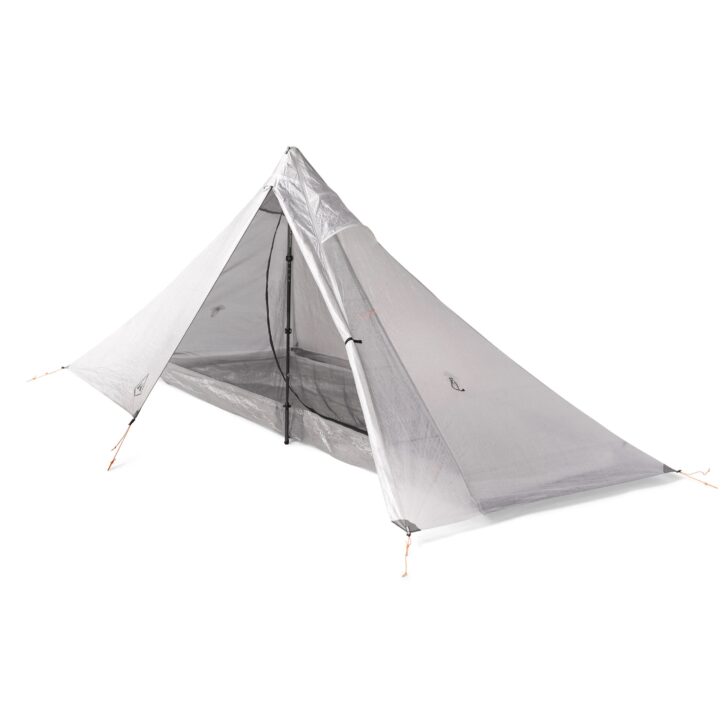 | shelters | Hyperlite Mountain Gear | Mid 1 | A minimalist pyramid shelter that I've really grown fond of, because of its integrated floor and screened interior. Asymmetrical config gives more living space that small pyramids. |
 | shelters | Hyperlite Mountain Gear | Ultamid 4 | Still my go-to shelter when I need to share a tent while saving as much weight as possible. A huge amount of space and room for waiting out the rain and sorting lots of expedition gear. |
 | shelters | Tarptent | Dipole 1 Li Dipole 2 Li | This is the tent I've used the most in 2022-2023 for the simple reason that it's the most stormworthy 1P DCF shelter on the market, which gives me confidence above the treeline in the mountains. |
 | shelters | Slingfin | NFT Tarp | I've traded in all of my DCF flat and catenary cut tarps for the Slingfin NFT. Its 10D nylon fabric is incredibly strong and UV-resistant. Lots of tie-outs for storm pitch options. Flat ridgeline for different configurations. Catenary edges for perfectly tight pitches. This may be my idea of tarp perfection. |
 | shelters | MSR | Pro Bivy | A half-pound waterproof-breathable bivy sack for snow caving, tarp camping, and minimalist fair-weather trips in all seasons. |
 | shelters | Mountain Laurel Designs | eVENT Soul Bivy | Since I got the MSR Pro Bivy, I've used the MLD Soul less and less, but it remains in my gear closet for the use case where I need a low-visibility shelter for stealth camping in forested areas. |
 | shelters | Locus Gear | Khufu DCF-B Pyramid | While I prefer the HMG Mid 1P over the Khufu+Mesh Inner for buggy conditions, I still opt for the Khufu for bad weather in fringe seasons where no bugs are present and I'm trying to shave as much weight as possible. I can't believe the weather protection the Khufu offers for only 10 ounces. |
 | shelters | Hilliberg | Soulo Tent | The Soulo stays in my kit for the simple winter use case where snowy blizzards above the treeline are the norm and I need as much protection as possible from extreme winds, spindrift, and snow loading. |
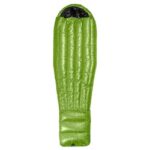 | sleeping | ZPacks | 10F Mummy Sleeping Bag 20F Mummy Sleeping Bag | For the weight, I haven't found a warmer mummy bag. I have a 10 °F model and find it to be way too warm between June and August, so it's mostly part of a mild winter sleeping system for me when I want to save weight over the Lark at the expense of the hood. |
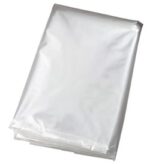 | sleeping | Gossamer Gear | Polycryo Ground Cloth | I burn through one or two of these ground cloths a year, because they are my tent floor when I'm bringing the Khufu, Slingfin NFT, or Hexamid. So, not as durable as Tyvek but much, much lighter. |
 | sleeping | Hyperlite Mountain Gear | 40-Degree Quilt 20-Degree Quilt | I've been using both models of the HMG Quilt in '23 but I've been far more impressed with the 20 °F model. Sure, there are cheaper ones out there at the same temp rating. However, for the weight, I've been hard pressed to find one as wide and as lofty (warm) as this one. |
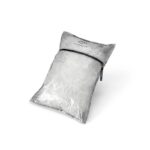 | sleeping | Hyperlite Mountain Gear | Stuff Sack Pillow | I've had the HMG Pillow sack in my kit for a long time. I add a little bit of 1" open cell foam inside, and then stuff it with stow bags and my wind shirt at night to dial in the pillow height. In my pack, it holds my sleeping pad, sleep socks, long underwear, and pad inflation sack. |
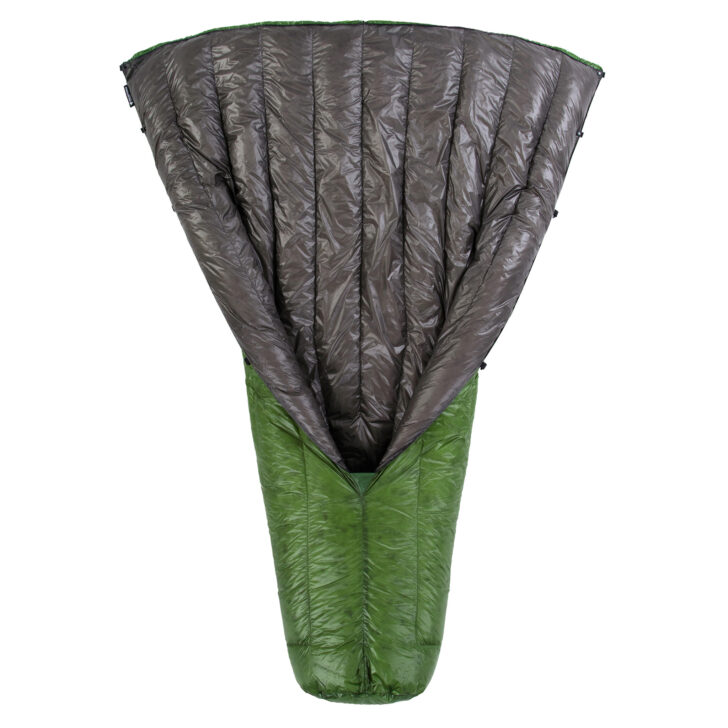 | sleeping | Enlightened Equipment | Enigma Down Quilt | My custom Enigma 20 stays in my kit, but only because Stephanie stole it from me. It's her favorite quilt, and for good reason. We spec'd it to be lighter than any other quilt at this temp rating, and that's the beauty of getting a custom quilt from EE. You get a wide variety of choices in fabric, colors, down fill quality, length, and width. |
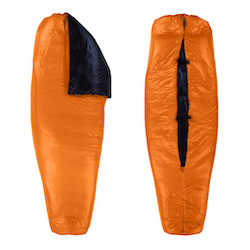 | sleeping | Enlightened Equipment | Enigma Apex Synthetic Quilt | My custom Apex quilt from EE has a 50 °F rating, wide width, long length, 7d fabrics, and weighs 10 ounces. I use it in a two-layer sleep system where low temperatures hover between 20 and 30 degrees - that terrible range where down fill goes south due to condensation accumulation. This is a staple in fringe season fall and spring hiking for me. |
 | sleeping | Feathered Friends | Tanager 20 CFL | There's something about a hoodless, zipperless, mummy sleeping bag. The simplicity and coziness of it have an aesthetic appeal that makes this my favorite sleeping bag. It's a little warm for the peak of summer, but remains my go-to option in October and November, especially when combined with my Apex quilt in a 2-layer sleep system that's warm enough down to about 0 °F. |
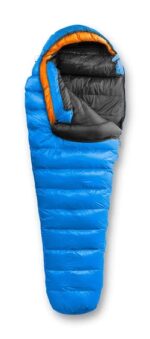 | sleeping | Feathered Friends | Lark 10 YF | When I don't want to fool around with 2-layer systems (shorter trips) and I want the coziness of a real mummy bag, the Lark 10 is my choice. It's been in my kit for years and is still the bag I grab the most for weekend winter backpacking. |
 | sleeping | Gossamer Gear | Thinlight Foam Pad (1/8") | I add this to my inflatable sleeping pad when I have to sleep on snow. |
 | sleeping | Nemo | Tensor Insulated Ultrailght (Rectangular / Wide) | Nemo is launching a whole new Tensor line soon, but until then, the Tensor Insulated Ultralight remains the gold standard of *comfort* (in terms of stability, quietness, and warmth) at this weight. I love the wide pad, even though I'm not a big guy, because it gives me more sleeping options (on my back or stomach with arms on pad and not hanging off; or side sleeping with a leg tucked up, etc. - things I can't do on a 20-inch wide pad.) |
 | trekking poles | Black Diamond | Distance Carbon Z Distance Carbon FLZ Distance Carbon Running Poles | Compact, folding, lightweight carbon poles with a long-standing reputation for durability. I use the FLZ for travel and the Running Poles the rest of the year. At 6.4 oz/pair, the Running Poles are far more durable (and lighter) than any other carbon pole on the market. |
 | trekking poles | Black Diamond | Alpine Carbon Cork Trekking Poles Men's Alpine Carbon Cork Trekking Poles Women's | For the weight, one of the sturdiest and durable trekking poles on the market. My pick for carrying a heavy pack in alpine terrain. |
 | winter & snow gear | Black Diamond | Distance Spikes | Lighter than Kahtoola Microspikes, I prefer the Black Diamond Distance Spikes for "just-in-case" scenarios where they are more likely to spent time in my pack than on my feet. I also like them for winter, because the soft shell toe cover prevents snow accumulation in my laces. |
 | winter & snow gear | Kahtoola | Microspikes | Long spikes, a secure fit, and durability. Most of our hiking miles are done in the winter months, so this remains my most used footwear accessory. |
 | winter & snow gear | Northern Lites | Northern Lites Race Snowshoes | I'm not a huge fan of snowshoeing (I prefer to ski) but when I have to wear snowshoes, the Northern Lites Race are a joy to wear - small, ultralight, nimble. These make snowshoeing fun again. |
 | winter & snow gear | Snowclaw | Guide Shovel | While I use a real aluminum snow shovel when I go into avalanche terrain, I prefer the Snowclaw Guide when I just need to sculpt snow for shelters or dig a snowcave in the forest. It moves an enormous amount of snow quickly. |
 | winter & snow gear | Black Diamond | Waterproof Waterproof Overmittens | I have several pair of rain mitts, but for winter use, I like the Black Diamond Waterproof Overmittens because they are generously sized for layering over pile, articulated, durable, waterproof, and breathable. A great winter shell mitt. |
 | winter & snow gear | Forty Below | Light Energy TR Overboots | For very cold temperatures, I still prefer trail running shoes (or trail running mid-height boots) for winter backpacking. Add a vapor barrier sock system and Forty Below Light Energy TR Overboots, and I have a system for snowshoeing in subzero temperatures that still allows me to spend time in the winter backcountry with trail running shoes. |
 | winter & snow gear | La Sportiva | Ultra Raptor II Mid GTX Hiking Boots Men's Ultra Raptor II Mid GTX Hiking Boots Women's | Technical design suitable for more difficult terrain. Precise with a nice grippy sole on wet rock. I size these up to layer over a vapor barrier sock system or gore-tex sock system. My favorite ultralight snowshoeing shoe when paired with Forty Below Light Energy TR Overboots and Northern Lites Race snowshoes. |
 | winter & snow gear | Suluk 46 | Tica Ice Tool | I use a real ice tool for climbing, but for hiking on steep early summer snow where I'm mostly using an ice axe for self-below while climbing a slope with microspikes, the Tica does the job at a paltry weight. |
 | winter & snow gear | Suluk 46 | Uki Buck Saw | I build fires during the winter months. The Uki buck saw gives me the flexibility to cut 2-3 inch rounds that I can then split with my knife or a light hatchet to access the dry surfaces inside. I also use this when building snow shelters that have bough roofs. |
 | electronics | Garmin | Garmin epix Pro (Gen 2) Sapphire Edition | I use the Garmin Epix Pro 2 Sapphire in the 51mm diameter version (much higher battery life and better screen vs. the smaller models). The Epix Gen 2 Pro brings a more advanced hi-res AMOLED screen (better maps, charts, and more data per screen), improved battery life, and the new V5 sensor (more accuracy). |
 | accessories | Ombraz | Ombraz Sunglasses | Exceptional Zeiss optics, light weight, terrific durability, and compatibility with a wide variety of headwear. |
 | shelters | Tarptent | Tarptent Dipole 1 DW | Very solid contender for winter at or below the treeline – extreme cold (due to minimal mesh in the solid fabric inner), snow-loading (due to the pole-and-strut structure), and wind resistance. |
 | accessories | MSR | MSR Core Stakes | Incredible holding power-to-weight ratio in a wide variety of soils, more durable heads than Easton tubular stakes. |
 | sleeping | Nemo | NEMO Tensor Extreme Conditions Ultralight Insulated Sleeping Pad | Adds more warmth and stability for little extra weight vs. the standard model Tensor Ultralight Insulated series. |
 | shelters | Slingfin | Slingfin Crossbow 2 Four-Season Tent | If you know what you’re doing with both external and internal guylines and added structure with trekking pole outriggers, this tent is the lightest 2-vestibule (one for gear, one for cooking), double-wall winter tent available that can handle extreme conditions. |
 | base layers | Arms of Andes | Men's Alpaca Wool Long Sleeve Shirt Women's Alpaca Wool Long Sleeve Shirt | Untreated alpaca wool base layers that are light, lofty (due to the high crimp of alpaca vs. merino), and hydrophobic (better for sweat management). |
 | base layers | Senchi Designs | Alpha 60 Hoodie | Simple, ultralight Alpha 60 layer that provides a very high warmth-to-weight ratio, extreme breathability/air permeability. |
 | base layers | Senchi Designs | Alpha 60 Legging | Simple, ultralight Alpha 60 layer that provides a very high warmth-to-weight ratio (great for in-camp and sleep wear), and extreme breathability/air permeability (for layering as a base layer). |
 | footwear | Farpointe | Alpha Camp Socks | Simple, ultralight Alpha 60 layer that provides a very high warmth-to-weight ratio (great for in-camp and sleep wear). |
 | footwear | Goosefeet | Down Socks | Critical piece of kit for me when temperatures drop below freezing. I wear these for about 6 months of the year (October through March) as sleep socks over my Alpha socks. Water-resistant fabric means you can wear them in the snow when nature calls! |
 | shelters | Durston Gear | X-Mid Pro 1 | Unique for its easy setup and speed of pitching, deep vestibule storage when the doors are open, and livable square footage-to-weight ratio. |
 | other clothing | Arc'teryx | Men's Squamish Women's Squamish | One of the most comfortable wind shirts on the market for high-exertion activities (high MVTR, high APR). The zipper can be operated easily with gloves or one hand - it's the only wind shirt with a tooth (not coil) zipper. Wide, stiffened hood brim. This is a rare combination of specs and features. |
 | other clothing | Patagonia | Men's Houdini Jacket Women's Houdini Jacket | A classic wind shirt that's still useful in high winds and cold temperatures. It has a moderate MVTR, low APR, and some water resistance. It includes adjustable ventilation features, but the low APR limits comfort in warmer conditions. |
 | other clothing | Patagonia | Men's Airshed Pro Women's Airshed Pro | This is my favorite wind shirt for moving fast (e.g., trail running, fastpacking) in warmer, breezier conditions when I want a close fit, stretch fabrics, light wind resistance, and sun protection (but don't want to wear a baggy sun shirt). |
Conclusion
My gear kit is in a constant state of flux. I yearn to downsize it and just keep those items that are durable and versatile across a wide range of conditions. I’m not always successful. I have too many shelters, jackets, stoves, water filters, shoes, sleeping bags, and backpacks.
When I started this article and offered my guidelines for consumption, I meant it. They are ideals that I’m working towards, not standards that define where I’m at today. Being an outdoor industry professional, a lot of new gear passes over my desk each week. I do my best to stay on top of current trends, and I certainly enjoy testing new gear in the field. But I don’t like owning it, storing it, cleaning it, repairing it, or figuring out how to sell it or donate it when I no longer want it.
If I have one piece of advice to leave you with today, it’s this:
Study this gear guide in the context of adding gear to your kit only if it’s capable of dramatically improving your outdoor experience, and resist the temptation to buy gear for the quick fix of dopamine that comes with getting new stuff. It will wear off, and then you’ll be left paying the bill.
Pack less, be more, and happy trails. – RJ
Support Our Efforts to Promote Consumer Advocacy
Backpacking Light provides access to trusted expertise so you can enjoy the backcountry with confidence. Please consider supporting our work as consumer advocates by becoming a member.
DISCLOSURE (Updated April 9, 2024)
- Product mentions in this article are made by the author with no compensation in return. In addition, Backpacking Light does not accept compensation or donated/discounted products in exchange for product mentions or placements in editorial coverage. Some (but not all) of the links in this review may be affiliate links. If you click on one of these links and visit one of our affiliate partners (usually a retailer site), and subsequently place an order with that retailer, we receive a commission on your entire order, which varies between 3% and 15% of the purchase price. Affiliate commissions represent less than 15% of Backpacking Light's gross revenue. More than 70% of our revenue comes from Membership Fees. So if you'd really like to support our work, don't buy gear you don't need - support our consumer advocacy work and become a Member instead. Learn more about affiliate commissions, influencer marketing, and our consumer advocacy work by reading our article Stop wasting money on gear.

